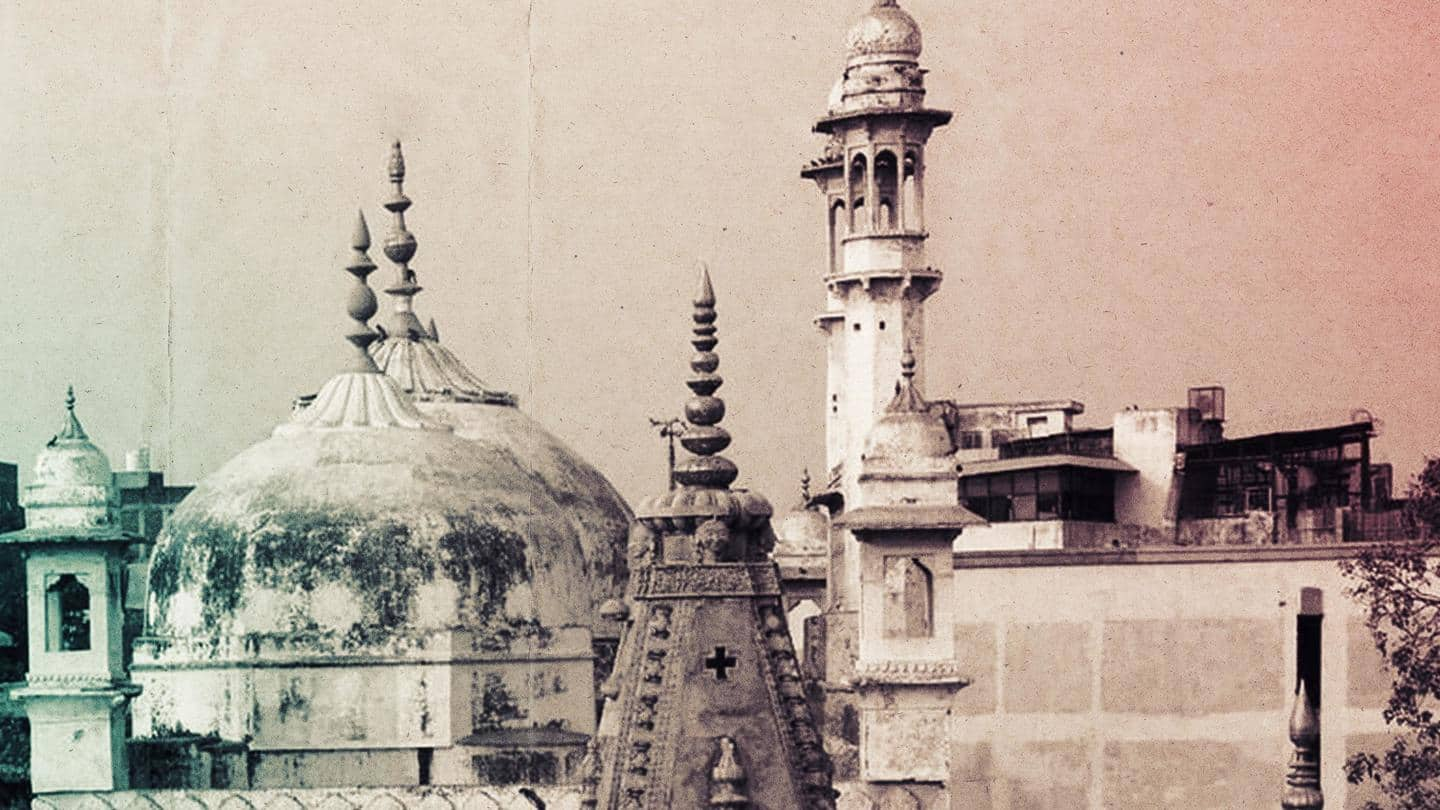
Gyanvapi case: A big win for Hindu petitioners in court
What's the story
A Varanasi court on Monday decided to hear a plea filed by five Hindu women demanding the right to worship within Gyanvapi Mosque.
District judge AK Vishvesha stated the court will continue to consider the women's plea, which resulted in a survey within the mosque.
The court dismissed the plea by the mosque management challenging the maintainability of the Hindu petitioners' plea.
Context
Why does this story matter?
The court had ordered to seal the spot after a Shivling was allegedly found inside the mosque complex.
However, the mosque management claimed it was part of the wazukhana's fountain.
Later, the SC ordered the authorities to protect the area without hindering Muslims' access to namaz.
It asked the local court to decide on the 'maintainability' of the videography and survey petition.
Petitions
Demands made in petitions
The Hindu side sought permission for daily worship of the Shringar Gauri in the mosque complex, permission to worship the alleged Shivling, a survey to determine the length and width of the Shivling, and a provision for an alternate wuzukhana arrangement.
The Muslim side pleaded that the matter didn't meet the parameters of the 'Places of Worship Act, 1991', and wanted the matter dismissed.
Argument
Mosque management committee invoked Places of Worship Act, 1991
The latest plea filed by the Anjuman Intezamia Masjid Committee contested the maintainability of the Hindu side's petition.
It argued that the mosque is a Waqf property, and thus it had the authority to decide over the matter.
The committee invoked the Places of Worship Act, 1991, which prevents the alteration of the character of any place of worship in India.
Case transferred
SC transferred case to district judge
The court-appointed videography team allegedly found a Shivling in the Gyanvapi Mosque complex during the investigation and filed its final survey report to the civil court on May 19.
On May 20, the Supreme Court referred the matter from the civil judge to district judge.
It was done after considering the "complexities" and "sensitivity" of the situation.
Context
Controversy erupted in 1991 amid petitions against mosque
As per reports, lawyer Vijay Shankar Rastogi petitioned a Varanasi court in 1991 on behalf of the presiding deity of the Kashi Vishwanath Mandir as the "next friend."
Rastogi had suggested that Maharaja Vikramaditya constructed a temple there 2,050 years before the mosque.
Other petitioners claimed that Aurangzeb removed a part of the Kashi Vishwanath Mandir to construct the mosque in the 17th century.
Background
1991 case was grounded for years
The 1991 case was on hold for several years until the Allahabad High Court stopped the hearing.
The HC's ruling was based on the Places of Worship Act, 1991, which prohibits any alterations to a place of worship's religious character as it existed on August 15, 1947.
However, the matter reappeared in 2019 with the Supreme Court's verdict in the Babri Masjid-Ram Janmabhoomi case.